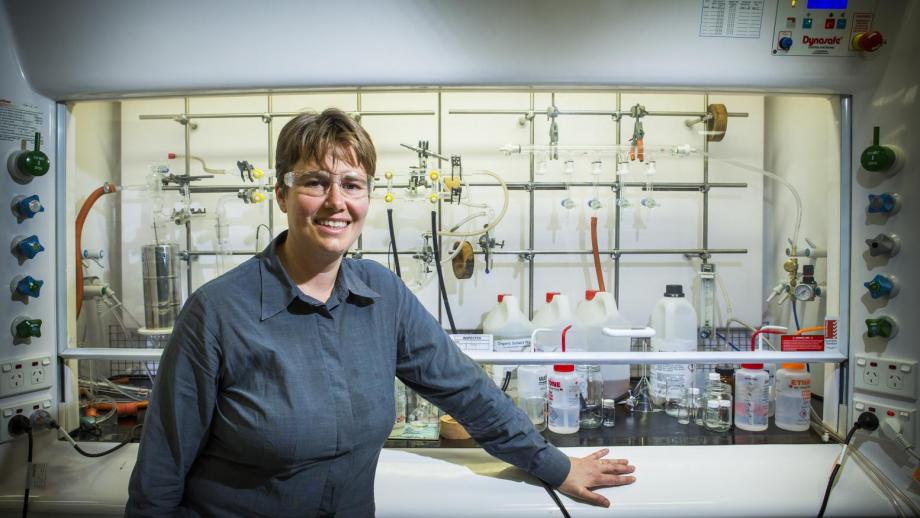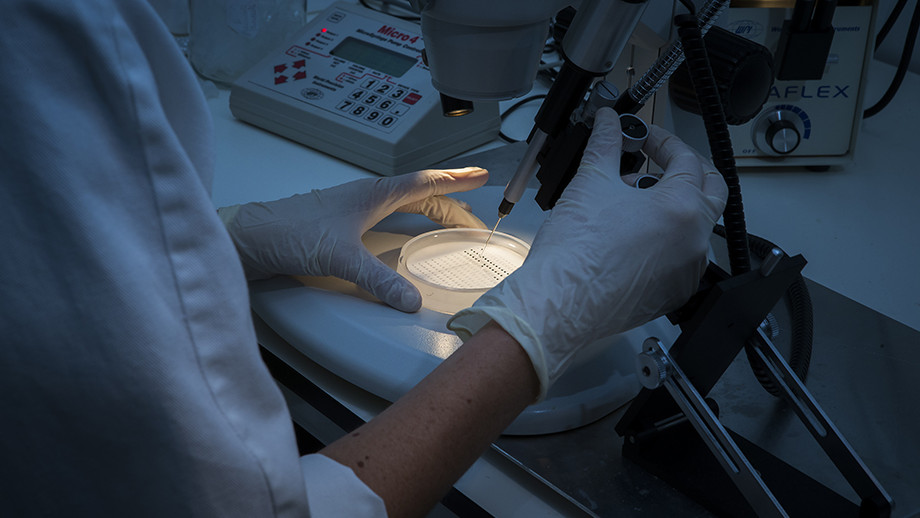Prestigious fellowships awarded to ANU chemists
Two ANU chemists have been awarded prestigious Australian Laureate Fellowships from the Australian Research Council (ARC).
Professor Michelle Coote from the ANU Research School of Chemistry won the Georgina Sweet Australian Laureate Fellowship for science and technology for a project to establish a new approach to chemical catalysis.
Professor Gottfried Otting, also from the ANU Research School of Chemistry, won a Australian Laureate Fellowship for a project to improve the design of lead compounds in drug development.
Professor Coote's $2.3 million Georgina Sweet Australian Laureate Fellowship will help establish a new approach to chemical catalysis using the electrostatic effects of pH-switchable charged functional groups.
Using a combination of theory and experiment she hopes to establish a game-changing approach to controlling chemical reactions, while training the next generation of chemists in the principles of computer-aided chemical design.
"I am particularly pleased to receive the Georgina Sweet Fellowship and see this as an outstanding opportunity to help address long-standing gender inequities in chemistry and STEM disciplines generally," Professor Coote said.
"We are at an exciting point in history where the need for change has finally been embraced, and I am proud be at forefront of developing strategies for effecting this change."
Professor Otting won a $2.6 million Australian Laureate Fellowship for a project designed to have immediate benefits in the design of lead compounds in drug development.
"It was simply wonderful to hear the news. The funding will give me the opportunity to implement new nuclear magnetic resonance (NMR) approaches developed at the ANU over the past one and a half decades for streamlining the discovery of new drug molecules," Professor Otting said.
"It will also bring modern cutting-edge solid-state NMR techniques developed overseas to Australia and provide advanced training for Australian NMR researchers."
A further seven ANU researchers in science, medicine, health and environment received ARC Future Fellowships:
Associate Professor Scott Morrison from the Mathematical Sciences Institute at ANU was awarded a $950,000 ARC Future Fellowship to investigate quantum symmetries, new mathematical objects which allow an algebraic description of topological phases of matter.
Dr Stephanie Goodhew from the ANU Research School of Psychology was awarded $756,000 ARC Future Fellowship for a project that aims to investigate the mechanisms that underline people's capacity to rescale the focus of their visual attention.
Dr Qinian Jin from the ANU Mathematical Sciences Institute was awarded a $800,000 ARC Future Fellowship. His project expects to develop purely data-driven rules to choose the regularisation parameter and show how they work in theory, and in practice.
Dr Chunle Xiong from the ANU Research School of Physics and Engineering was awarded a $746,000 ARC Future Fellowship. The project aims to address the fundamental challenges of developing quantum communication technology in space by performing space qualification of quantum technologies and optimising quantum-key description protocols for space applications.
Dr Ceridwen Fraser from the ANU Fenner School of Environment and Society was awarded a $897,000 ARC Future Fellowship for a project that aims to understand how environmental changes are driving the movement and extinction of plants and animals.
Dr Pu Xiao has been awarded a $681,000 ARC Future Fellowship for a project at the ANU Research School of Chemistry. The project aims to expand fundamental scientific knowledge of photochemistry for 3D printing.
Dr Alexander Poddubny from the ANU Research School of Physics and Engineering has been awarded $666,000 ARC Future Fellowship. The multidisciplinary project aims to bridge fundamental topological physics with nonlinear nanophotonics and optomechanics.


